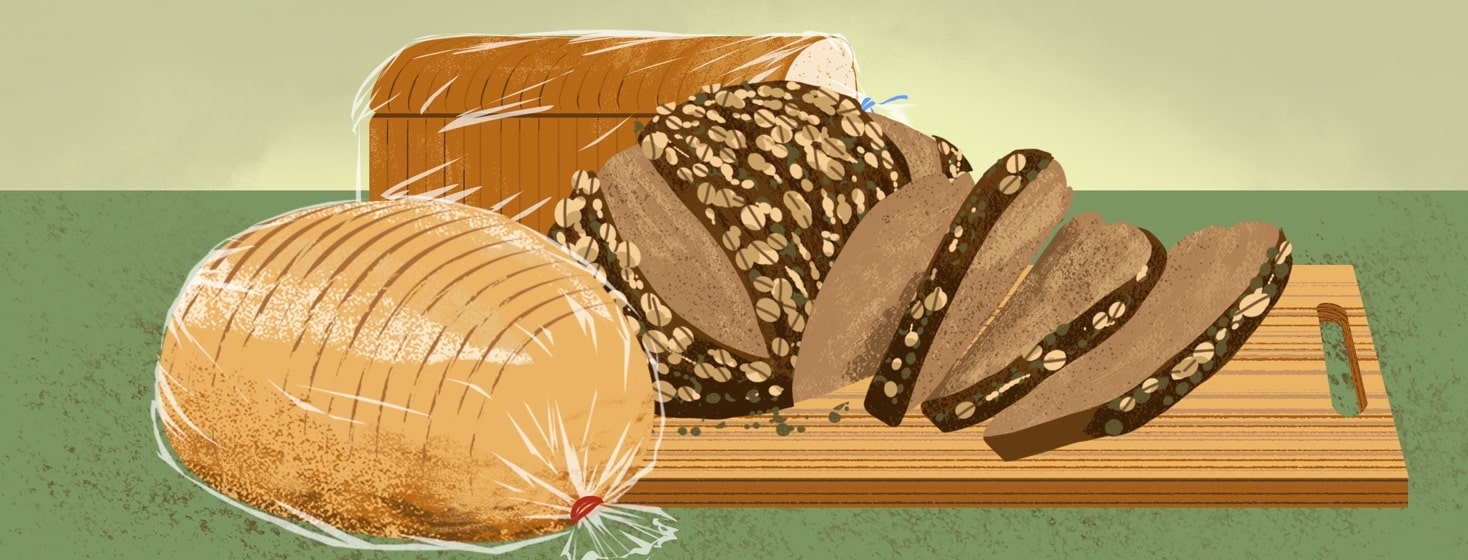Which Breads Are IBS-Friendly?
Let’s face it: Bread makes for an easy option for a quick meal, but when you have IBS it’s important to find one that suits your body.
As a nutritionist, I often suggest to my patients that less is more; which means the fewer ingredients the better.
Often commercially made bread is filled with a range of ingredients, some of which can be unbeneficial for your health. Additives, yeast, and sugar can be a problem for those with sensitive bellies, so proceed with caution.
Read bread labels
By choosing a bread that only contains a few ingredients, it’s easier to pinpoint which ingredients do or don’t agree with you.
Start reading labels - by doing this you can have control over what is going into your body and you will understand which ingredients are causing symptoms.
IBS is linked to a state of low-grade inflammation in the gut, which means that it’s best to choose anti-inflammatory ingredients; this means choosing ingredients that are natural and avoiding chemicals and highly processed foods such as refined oils.1 In addition, it’s important to avoid ingredients that you know create symptoms; this could mean that some ingredients that are healthy for most other people, may not be tolerated by you. It’s best to work with a nutritionist if you are avoiding foods, to make sure you don’t end up with nutrient deficiencies.
Understand IBS triggers
Ideally, it’s good to know what foods you react to before choosing bread, this can be done by keeping a food diary and recording your symptoms. It can be tricky interpreting this, however, as symptoms can occur up to one or a few days later after eating the offending food. If you’re struggling to pinpoint which foods are causing problems for you, then it’s time to work with a nutritionist.
Consider FODMAPs
High FODMAP foods can be a problem for people with IBS. FODMAP stands for Fermentable Oligosaccharides, Disaccharides, Monosaccharides, and Polyols, which are carbohydrates that are difficult to digest and may cause abdominal pain and bloating.
Low FODMAP ingredients that can be used to make bread include:
- Spelt
- Corn
- Rice
- Sorghum
- Oats
- Millet
- Teff
- Potato starch
- Tapioca starch
- Buckwheat
- Quinoa
- Psyllium husk
Investigate SIBO
However, these foods can be high in fiber which may exacerbate symptoms in some people. If fiber is a problem for you, consider investigating if there is an underlying cause such as Small Intestine Bacterial Overgrowth (SIBO).
If you have SIBO and fiber flares up your symptoms then it’s best to avoid starches and psyllium husk and experiment with some of the above ingredients to see what your body tolerates. As a nutritionist, I find that buckwheat, millet, rice, and small amounts of quinoa are commonly tolerated by my patients with SIBO, however, everyone is different so find what works for you.

Join the conversation